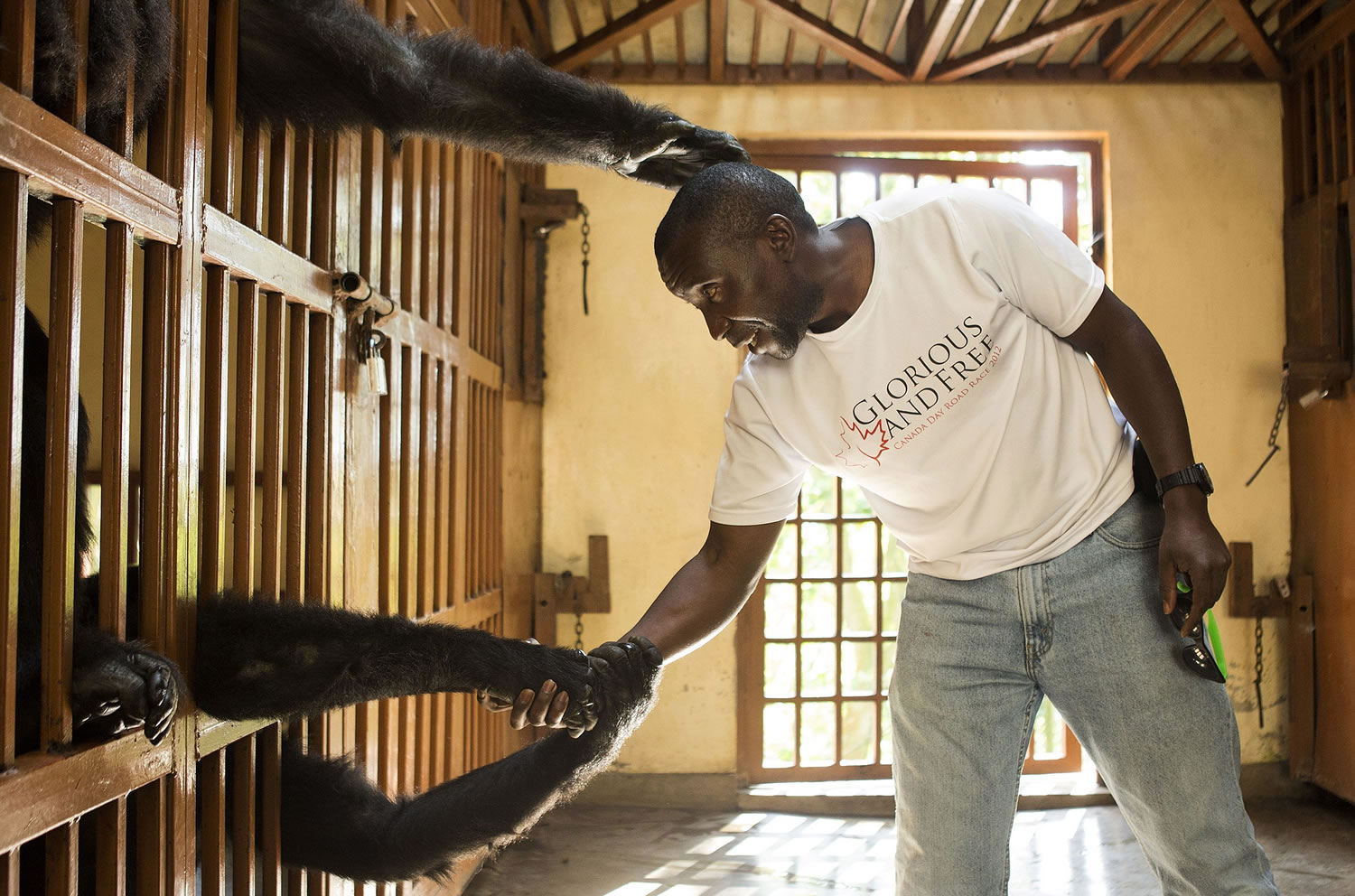RUMANGABO, Congo — Andre Bauma rolls in the grass with a young mountain gorilla, Ndakasi. He hugs the hulking hairy creature whom he thinks of as his own child, and slaps her chest affectionately.
The great ape is part of park ranger Bauma’s second family at the Senkwekwe Center for gorilla orphans in the 3,000-square-mile Virunga National Park, Democratic Republic of Congo, where about a quarter of the world’s estimated 880 surviving wild mountain gorillas reside.
“I love these gorillas, yeah, and I’d like to just stay with them forever,” he says.
Ndakasi was 2 months old when Bauma found her clinging to her mother, who’d been shot through the head. Besides the mother, six other Virunga mountain gorillas were shot dead with automatic weapons in mid-2007. The assailants were never found, but they were believed to be connected to the illegal charcoal trade.
“I felt in my heart that we have to save those babies. This is our job, but it came from my heart,” says Bauma.
Bauma behaved like a parent with Ndakasi, sleeping in the same bed with her.
“We have to show them they are not orphans, they are in the family. That’s why we have to play with them, to give them food, to sleep together; and they must know they have everything they need.”
Spanning volcanic lava craters, snowcapped mountains, tropical rainforest, misty lakes and sweeping African savanna, Virunga National Park is both the oldest in Africa, designated in 1925, and the largest. It remains home to more species of animals and plants than any other park in Africa.
But the gorillas here, who reside in what has been one of the world’s worst war zones and most corrupt regions, have been on the brink of extinction for years. Threats have included rebel militias; the lucrative charcoal trade, which destroys their habitat; and, over the past two years, a high-stakes proposal to begin exploring for oil in one of the world’s most remarkable animal reserves.
The British-based oil firm SOCO carried out seismic tests in Virunga in 2014, touching off an international outcry over possible damage to the UNESCO World Heritage site. After blistering international criticism, the company said in March that it would have no further involvement with an oil concession in the park.
But the issue may not be over. Prime Minister Augustin Matata Ponyo says the government still hopes to negotiate with UNESCO to “judiciously” explore for oil and “reap the profit of its resources to benefit the people who live there.”
In recent years, the threats to Virunga’s animals and those who care for them seem to have come mainly not from the oil industry, but from the poaching trade and the chaos of civil war.
The famed gorillas have been picked off — and so have the rangers.
In the past two decades, 140 park rangers have been killed by various encroachers, park officials say.
“We know we have many enemies,” Bauma says. “But we have to struggle because if we are weak, the enemy will destroy the park.”



